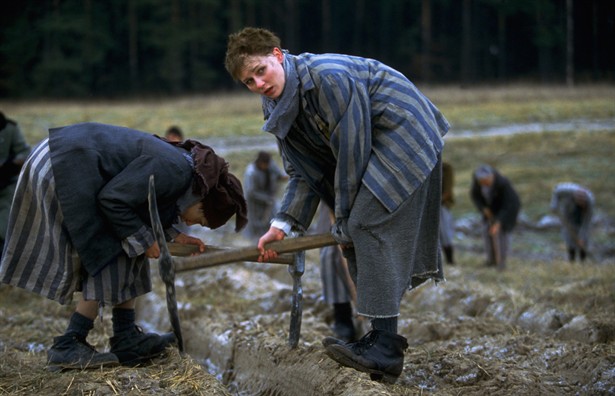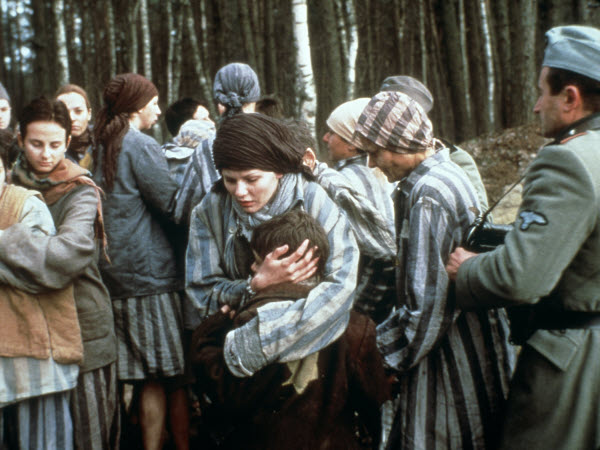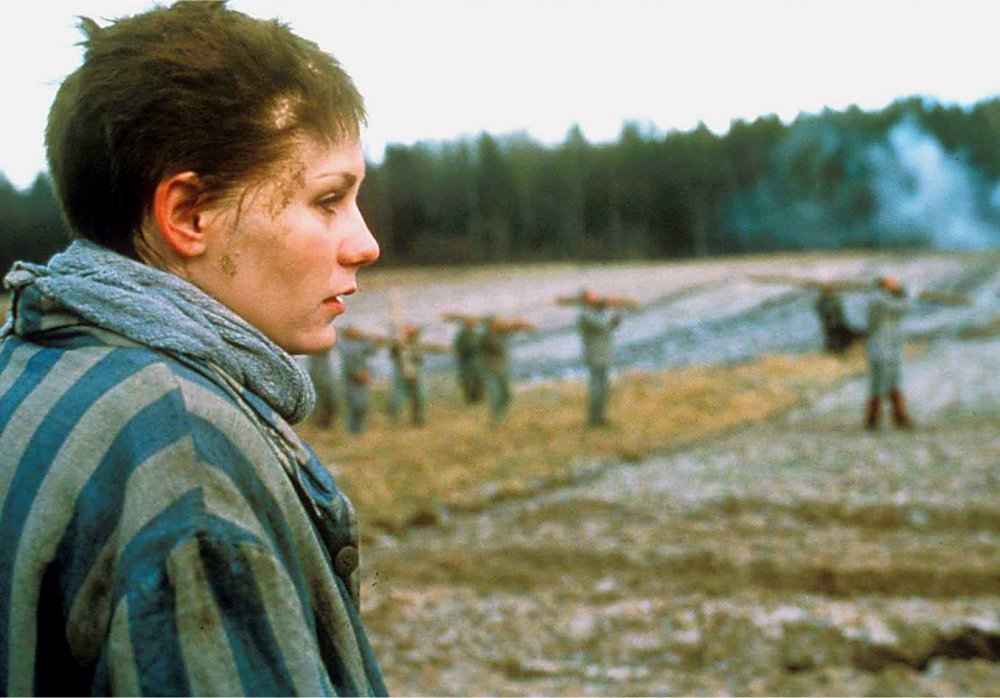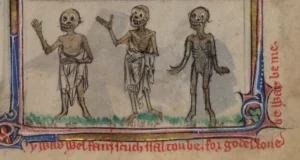
Showing the Holocaust on film is always going to be a controversial move for some. There is, after all, so much films can show. They will never be able to capture the horror of the Nazi concentration and death camps or the suffering of those imprisoned there. So I was surprised to watch a film recently that actually centres on life within a death camp. Today’s focus is on the portrayal of a death camp in a film meant for a young adult audience.
The Devil’s Arithmetic (1999) is a film adaptation of Jane Yolen’s book of the same name. The young adult novel relates the experiences of modern Jewish girl, Hannah, who, having little regard for her heritage, finds herself inexplicably transported to 1944 Poland. Like the other Jews in the area, she is rounded up and taken to a death camp. The camp on film was built for the production, made to resemble Auschwitz. The film itself takes place mostly in the camp and, while it cannot capture the true horror of the conditions that the Jews endured, it actually manages to convey a surprising amount, especially considering that it is aimed at young adults.
To begin, the Nazis arrive at a Jewish community during a wedding, where they promptly force everyone present into a large truck, burning the synagogue before they escort the Jews to the camp. Once there, they are pulled out of their cramped transportation, where they are confronted with more Nazi officers, barking orders and beating the Jews that don’t cooperate quickly enough. The entry to the camp is hurried, rushed and unpleasant. The Jews are stripped of everything they have, beginning with their belongings, then their clothes, then their hair and eventually their names. All the while the Nazi officers scream at them and abuse them, hurrying them forward.
The Nazis’ power over life and death is demonstrated frequently, not just by the selection of who goes to the gas chambers, but often on a whim, a Nazi will arbitrarily point at someone and decide they should no longer live. In one scene, two officers joke about the best way to kill a Jew, attempting to demonstrate on the nearest to hand, simply because they can. Sometimes characters simply disappear, never to be mentioned again.

In the camp itself, the Jews sleep in massively overcrowded bunks, with many being forced onto the floor from lack of space. Although, historically, they slept in far greater overcrowding than is shown, the effect is still conveyed. Every day the Jews go out and work on the land, but to no visible effect. The work is manual and laborious but with ultimately no aim or purpose, other to exhaust the population. And this is how the film progresses. They wake up, they work, they sleep, repeat. Time has no meaning. As the pattern is so determined and repetitive I do not know if the film covers the space of some months or a year. At one point the main character, Hannah, declares that she could barely recall anything before her life at the camp, nor determine how long exactly she had been there, and I can certainly sympathise, everything fades very easily into a progressive haze.
The film very much depicts the idea of grinding them down. Initially after a day on the land, Hannah regales those around her with tales from the future (all of which is chalked down to her vivid imagination), but as the film progresses the stories disappear. Instead as soon as they enter their bunks they go to sleep, utterly exhausted. Little things like this and the very slow development of exhaustion related illnesses in characters, certainly show something of the challenge of simply staying alive within the camp, something which is shown to be increasingly unlikely as the film progresses. There is definitely a sense of death being the inevitable outcome for all of the inmates and frankly by the end you are surprised any of them survived.
The Devil’s Arithmetic is not a great film. It’s the kind of film you would watch in a History class when studying the Holocaust, probably because of this depiction of camp life. While it is

incredibly difficult, I would go so far as to say impossible, to demonstrate what daily life was like in a death camp, it does at least touch on some of the major issues of segregation, malnourishment, abuse, disease, exhaustion and in general the ongoing fight to live. The message of the film, however, is to show that it is not enough to simply survive but to survive with a faith undeterred by the conditions they endured. At no point do any of the characters blame their Jewish heritage for what has befallen them, and those that do are counseled by their friends to see that it is the Nazi Party, nothing more or less, that is behind these events. And this is one of the more interesting depictions in the film, as the characters are secure enough in their faith to appreciate that their God has not abandoned them, nor ever will, which corresponds quite nicely with many of the survivor’s testimonies from many of the death camps.













